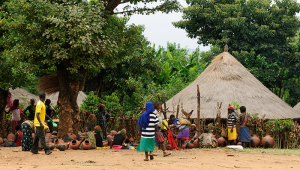By Judith Ugwumadu | 21 May 2014
The World Bank has approved two loans for Ghana worth $224m to help the African nation improve its access to secondary education, maternal and child health services.
In line with the Ghanaian government’s efforts to provide services to underserved areas, $156m will be channelled towards the Secondary Education Improvement Project, which hopes to enrol 30,000 new students and improve learning outcomes.
Deborah Newitter Mikesell, World Bank task team leader for the Secondary Education Improvement Project, said: ‘With access to primary education becoming near universal in Ghana, emerging priorities now include expanding access to good-quality secondary education, which has not kept pace with increased demand.
‘Significant social and geographical inequities continue to affect students trying to enter and complete their education at the secondary level, and the quality of education is very uneven.’
As a result, the project aims to support access through expansion and scholarships in underserved districts, and to help boost the quality of education, especially in science and mathematics.
Also, $68m will help ensure that pregnant women, mothers and young children receive critical health and nutrition services. It is expected to benefit 1.6m women of reproductive age, in particular pregnant women and 5.6 million children under age two.
The bank added that a $5m grant from the Health Results and Innovation Trust Fund, a multi-donor trust fund created by the World Bank in 2007, will go towards the project to pilot a result-based financing approach which builds in rewards for service providers who achieve agreed targets of maternal and child service delivery.
Evelyn Awittor and Francisca Ayodeji Akala, who lead the maternal and child health and nutrition improvement project, added that focusing on services at community level would help Ghana make quicker progress towards achieving the maternal- and child-health related Millennium Development Goals, ‘on which the country is currently off-track’.













